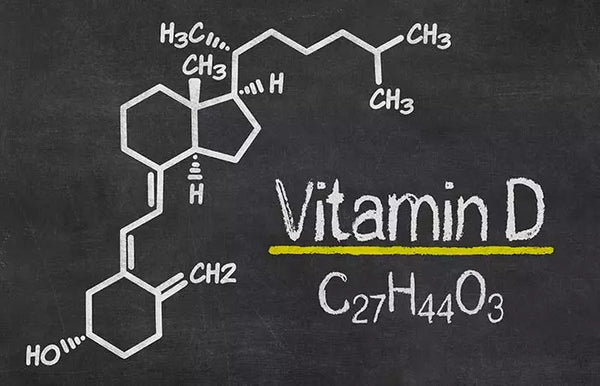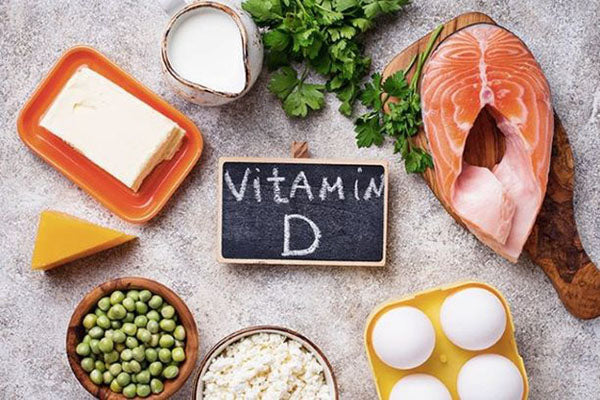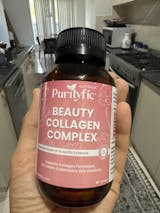
Here Are a Number of Benefits of Vitamin D for Covid 19

What are the benefits of vitamin D for Covid 19?
Vitamin D is the essential nutrient your body needs to build and keep your bones strong, among other benefits. Sunlight is the main source of this nutrient. Your skin will absorb the sun's ultraviolet rays and convert them into vitamin D.
But many people are experiencing vitamin D deficiency, or not getting enough. This is especially if you're elderly, don't eat healthy foods, or have a darker skin tone. And those low levels can increase the risk of severe COVID-19 if infected.
Read: 5 Tips for Choosing Vitamin Supplements for Children
Vitamin D dan Covid 19
Vitamin D is one of the substances that boosts the immune system and relieves inflammation, experts say more research is needed on its antiviral properties.
One study found that people with low vitamin D levels had a 7.2% chance of making a positive COVID-19 test. Others have found that high vitamin D levels can lower your risk of severe COVID-19 infection, especially if you're a black person.
The study involved more than 3,000 people whose vitamin D levels were tested in the 14 days before they were tested for COVID-19. Black people who have enough vitamin D in their blood — slightly above normal limits — are twice as likely to test positive than those with higher levels of vitamin D.
But other reports suggest higher vitamin D levels do not lower the risk of viral infection, hospitalization, or severity of COVID-19. The researchers observed more than 1 million people of European descent from 11 countries. They also included people with gene mutations that allowed them to have naturally high levels of vitamin D.
And a third study found that giving vitamin D to inpatients with moderate to severe COVID-19 did not help their condition or reduce their stay in the hospital.
Other Research Links Between Vitamin D and Covid19
Since the last revision of this section, results from several cohort studies, clinical trials, and meta-analyses on the use of vitamin D for the prevention or treatment of COVID-19 have been published in peer-reviewed journals or have been made available, as manuscripts prior to peer review.
However, most of these studies have significant limitations, such as a small sample size or lack of randomization and blinding.
In addition, the study used a variety of doses and formulations of vitamin D, enrolled participants with varying severities of COVID-19, including different drugs simultaneously, and measured the results of different studies.
Although some observational cohort studies show that people with low vitamin D levels are at an increased risk of SARS-CoV-2 infection and worse clinical outcomes after infection (e.g., higher mortality rates), evidence is clear that vitamin D supplementation provides protection against disease or improves outcomes in patients with COVID-19 is still lacking.
Vitamin D for COVID-19
Vitamin D is required for mineral and bone metabolism. Vitamin D has the ability to affect innate and adaptive immune responses since vitamin D receptors are expressed in immune cells such as B cells, T cells, and antigen-presenting cells, and these cells can produce active vitamin D metabolites. It was proposed that vitamin D's immunomodulatory activity could protect against SARS-CoV-2 infection or lower the severity of COVID-19.
Vitamin D deficiency (as a serum concentration of 25-hydroxyvitamin D 20 ng/mL) is common in the United States, particularly among people of Hispanic ethnicity and the black race. These groups are overrepresented among COVID-19 cases in the United States.
Vitamin D deficiency is also more common in older patients and patients with obesity and hypertension; these factors relate to worse outcomes in patients with COVID-19. High levels of vitamin D can cause hypercalcemia and nephrocalcinosis.
Vitamin D and Other Conditions
Not getting enough vitamin D can cause or exacerbate these health problems:
- Heart disease
- High blood pressure
- Diabetes
- Infections and problems with your immune system
- Some cancers, including colon, prostate, and breast cancer
- Multiple sclerosis
- Pneumonia
- blood clots
All of this can increase your risk for severe COVID-19 if infected.
Research shows that obesity and diabetes are associated with low levels of vitamin D. They are also associated with higher mortality rates or severe COVID-19 symptoms.
How to Get More Vitamin D
The best strategy is to get more sunlight and eat foods high in vitamin D. Get 15-20 minutes of sunlight three times a week. Consume foods like as:
- Oily fish (such as salmon or sardines)
- red meat
- Yolk
- Foods with the addition of vitamin D
- Supplements are also an option. Ask the doctor how much vitamin D you need before taking it. If you overdo it, you may have symptoms such as:
- Nauseous
- Increased thirst and urination
- Poor appetite
- Constipated
- Debilitation
- Confusion
- Ataxia is a neurological condition that causes you to swear or stumble
That’s the article on the benefits of vitamin D for Covid-19, hope this will help!








